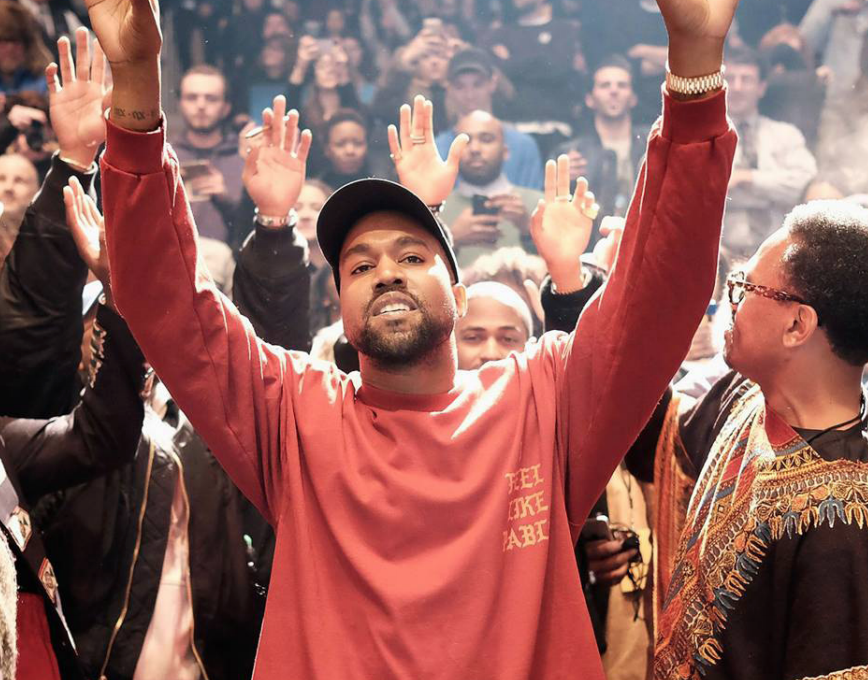By: Stephen Bennett, Staff Writer
Rap music with religious undertones does not have to be alienating. Chance the Rapper did so successfully with his 2016 project “Coloring Book”, and the vocal choir influence of Christian music can be felt throughout much of Kanye West’s previous work; but in order for “Jesus is King” to be effective, we as the audience need to feel and believe that his adoption of christian beliefs and attitudes are fully authentic.
West describes his latest offering to the masses as a “gospel album”, and while the 27-minute-long record does utilize several choral arrangements and samples of gospel music, it is overall more akin to Christian rap. On each of the eleven tracks, Kanye’s subject matter strictly adheres to biblical talk, often comparing himself to Christ and referencing bible passage titles. To sum up in his own words, “My life is His, I’m no longer my own.” Kanye claims throughout the album that he has given himself up to the Lord, but the inflated ego he expresses throughout his past work remains the same, and only appears to be more perverse in his new persona.
Kanye West’s career has been a series of high-flying accomplishments and subsequent flops. He found prominence early on in the hip hop scene as a young, masterful producer of chopped soul samples, elaborate orchestral beats, and futuristic electropop. In 2007, Kanye even managed to beat 50 Cent’s “Curtis” in sales with his own album “Graduation”. This win solidified Kanye’s first musical peak, but was followed by a few tumultuous years in the press, punctuated by the release of “808s & Heartbreaks”, an album soaked in auto-tune melodies that was largely rejected by fans and critics alike. From the ashes, West rose like a phoenix, if the mythical bird let out a Chicagoan “haaannh” instead of a high-pitched “cah-caw” and released “My Beautiful Dark Twisted Fantasy”, a maximalist epic that reasserted West’s position in hip-hop royalty.
A pattern was formed. Kanye would release a critically lauded album, follow with a controversial public incident or poorly received project, and then redeem himself by returning to form and adding new flare. West fixed his mistakes of 808s with Twisted Fantasy, and the aggression of “Yeezus” with the honesty of “Pablo”, but after following the incomplete and troubling “Ye”, we are given this to wrangle with.
There is no question that Kanye is now a devout religious man who finds comfort in the scripture, but it is fair to question whether he has learned anything from it. Like a hypebeast in a fake pair of Yeezys, “Jesus is King” flounders more than past Kanye blunders because there exists no substantive change beneath the surface of the lyrics and production.
“Use This Gospel,” one of the album’s stronger tracks, features the hip-hop duo Clipse, reuniting over a vocoder laced instrumental, haunted by a droning beep that sounds like someone needs to close their car door. Both members of the group deliver chillingly clever verses that serve to repent for their sins of past injustices. As their repentions soak in during a Kenny G saxophone solo at the end of the song, the hollowness of West’s previous sentiments over the course of the album ring even emptier.
West has never been the strongest lyricist, shining more for his sonic style and collaborative production abilities, and with an album that is about Kanye’s claims of self-betterment through religion, it is difficult to nod along when trite sayings have nothing to offer.
The chaos of Kanye can be a terribly beautiful experience to marinade in, but when West no longer posits himself as an anti-hero and more like Christ, all falls down.

